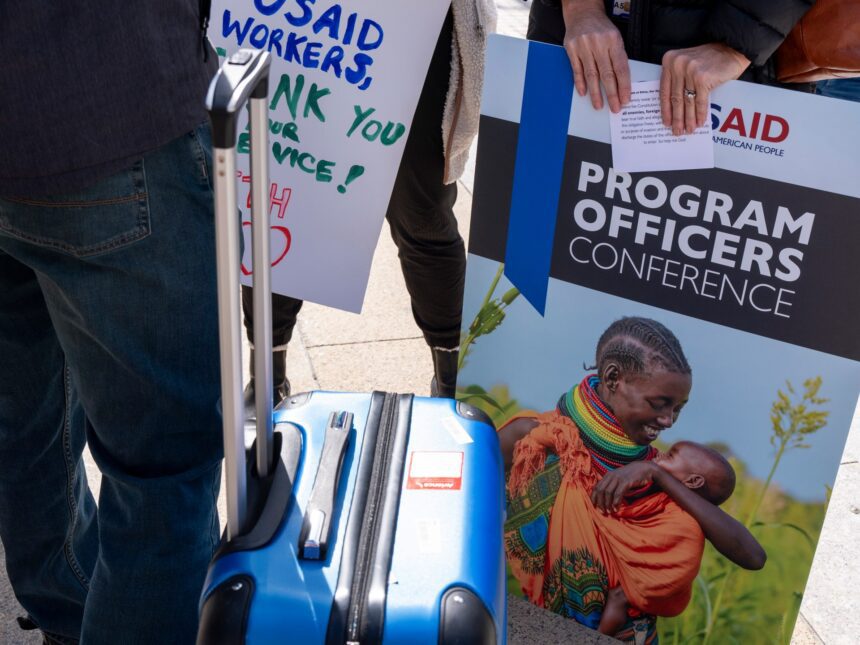President Donald Trump of the United States has launched a rapid campaign against the United States Agency for International Development (USAID), destroying the organization known as the “world’s largest donor” and causing aid workers to scramble to save the international development aid and humanitarian response system. Many have expressed deep concern over the significant impact of the President’s unprecedented decision, as well as similar moves by other countries like the United Kingdom to reduce aid.
Luca Crudeli, who claims to have been involved in development work since 2003, shared his thoughts on the situation in a LinkedIn post. He expressed a sense that the moral core of their work is slipping away and highlighted the risk of losing the humanistic essence of development in the pursuit of contracts and strategic goals.
However, referring to “development” as having a humanistic essence may be seen as contradictory by many in the Global South. This is not to say that individuals working in development are not decent and morally upright, genuinely seeking to improve the well-being of others globally. It is simply to point out that the core of development has always been less humanistic than it is often portrayed. In reality, aid has been used as a tool for geopolitical control, maintaining global inequality and the exploitation of resources.
Following the downfall of USAID, there has been a growing acknowledgment of this reality, whether consciously or unconsciously.
For instance, a statement from InterAction, which represents leading humanitarian and development organizations in the United States, initially stated that these organizations work to save lives and promote US interests globally. This candid acknowledgment was later revised, noting that the attack on USAID has halted programs that support US global leadership and create openings that China and other adversaries may exploit.
Marina Kobzeva, a veteran aid worker, observed differing reactions from colleagues in the Global North and Global South to the statement. While some from the Global North viewed it as a misstep in wording, those from the Global South felt vindicated, seeing it as a revelation of true intentions.
Western humanitarianism has long been intertwined with Western colonialism. The aid industry, inherited from colonialism, perpetuates a narrative of civilizing missions while obscuring the extractive nature of international systems. This industry legitimizes global trade and governance structures that perpetuate inequality, creating a cyclical dependency between aid agencies and the flawed systems they operate in.
Despite the proliferation of aid agencies, global racial hierarchies remain largely unchanged, with deep inequalities persisting between nations. Foreign aid has shown limited impact on promoting economic development and human welfare, and in some cases, may even hinder progress depending on the context.
As the aid sector faces uncertainties, some beneficiaries are not entirely saddened by potential aid cuts, hopeful that it would prompt local leaders to take responsibility rather than relying on aid. This underscores the need for fundamental reforms in global and national systems rather than charity-driven solutions.
The decline of Western aid will undoubtedly have dire consequences, with vulnerable populations suffering disproportionally. It is crucial to address the immediate impact while simultaneously working towards structural transformation. This entails reforming global trade and financial systems that perpetuate poverty and inequality.
The cessation of aid should mark the end of conventional development paradigms that perpetuate global injustices. Instead, efforts should be directed towards building a more equitable world where charity does not mask systemic issues.
This presents an opportunity to create a world without aid, focusing on true solidarity and global justice rather than charity-driven solutions. It is time to move away from outdated development ideologies and towards a more humane and just global order.
The opinions expressed in this article are the author’s own and do not necessarily reflect the editorial position of Al Jazeera.










